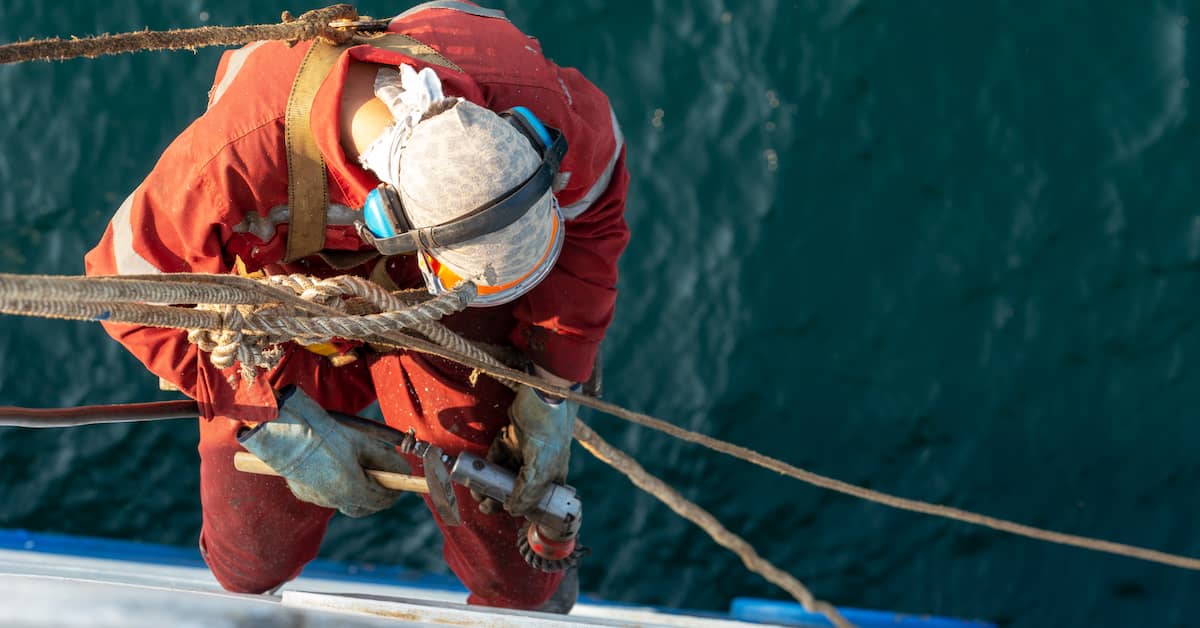
Maritime injuries are a significant risk for those working in the shipping, fishing, and offshore oil industries. The impact can be substantial, encompassing significant medical bills and, often, an inability to work during recovery. This can put immense financial strain on the injured and their families. Recognizing the common types of maritime injuries is crucial for prevention and seeking appropriate compensation when accidents occur.
At Patrick Daniel Law, we understand the physical, emotional, and financial toll maritime injuries can impose. We are committed to providing Strategic. Meticulous. Merciless. legal support to ensure that maritime workers receive the compensation they deserve when they need it most.
If you’ve been injured in a maritime accident, call (713) 999-6666 today to schedule a FREE consultation. We are proud to represent clients in Houston and throughout Texas. Find out how a maritime injury attorney can help you navigate this challenging time.
A maritime injury is any harm that occurs in a maritime setting, such as aboard ships, on offshore platforms, or while performing work related to maritime activities. These injuries can range from minor to severe and are covered under various maritime laws, including the Jones Act, the Longshore and Harbor Workers’ Compensation Act, and general maritime law.
Maritime laws recognize the unique dangers faced by maritime workers and provide avenues for compensation and recovery that differ significantly from other employment sectors. Understanding these protections is important for maritime workers to navigate their rights effectively after an injury.
The leading causes of maritime injuries reflect the complex and hazardous nature of maritime environments. Key factors contributing to workplace injuries include:
The most common cause of maritime injuries. Slippery decks, moving ships, and cluttered walkways make falls a frequent hazard.
Accidents involving the operation of heavy machinery and equipment. These incidents often result from mechanical failure or human error during high-stakes operations such as lifting heavy loads or engine maintenance.
Insufficient training for crew members on the safe operation of equipment and emergency procedures can lead to accidents. Additionally, a lack of adherence to safety protocols exacerbates the risk of injury.
Severe weather significantly increases the risk of accidents at sea. Workers may face rough seas, high winds, and extreme temperatures, all of which can lead to physical injuries.
The limited and congested spaces common on vessels increase the risk of injuries from collisions with objects and other crew members, often during rushed operations.
Each of these factors highlights the importance of rigorous safety standards and continuous training in the maritime industry. Understanding these risks is the first step toward prevention and is essential for maintaining a safe working environment on the seas.
If injuries do occur, workers need to seek experienced legal assistance to navigate the complexities of maritime law and ensure their rights are protected.
Maritime work environments are notably hazardous, leading to a variety of common injuries among seafarers. Here are some of the most frequently reported maritime injuries:
Each of these injuries carries the potential for severe consequences, impacting a maritime worker’s ability to earn a living and perform daily activities. Legal support from a knowledgeable Houston maritime injury lawyer is imperative when handling claims. They can ensure injured maritime workers receive the compensation necessary for their recovery and future security.
Maritime injuries can lead to significant financial and personal losses, which are categorized into economic and non-economic damages. Economic damages cover quantifiable losses. Non-economic damages compensate for less tangible impacts.
Victims of maritime injuries may be eligible to claim various types of damages, including:
Understanding the full scope of damages you are entitled to can be complex. It’s essential to consult with a Houston maritime injury attorney who can help you explore your legal options and ensure that you receive the compensation you deserve for all aspects of your injury.
If you or a loved one has suffered a maritime injury, seek legal counsel promptly to protect your rights. Patrick Daniel Law has vast experience handling maritime injury claims and is equipped to help you navigate the complexities of maritime law.
Our Houston maritime injury lawyer advocates for clients and is dedicated to securing the best possible outcome. Contact us today for a FREE consultation and take the first step towards getting the compensation you deserve.
 Top Truck Accident Lawyer in Pasadena
Top Truck Accident Lawyer in Pasadena Best of The Best Attorneys
Best of The Best Attorneys Best of the Best Houston Chronicle 2021
Best of the Best Houston Chronicle 2021 Best Motorcycle Accident Lawyers in Houston 2021
Best Motorcycle Accident Lawyers in Houston 2021 American Association for Justice Member
American Association for Justice Member The National Trial Lawyers 2016 – (Top 40 under 40)
The National Trial Lawyers 2016 – (Top 40 under 40) Multi-Million Dollar Advocates Forum 2016 (Top Trial Lawyer)
Multi-Million Dollar Advocates Forum 2016 (Top Trial Lawyer) Million Dollar Advocates Forum 2019 (Top Trial Lawyer)
Million Dollar Advocates Forum 2019 (Top Trial Lawyer) America’s Top 100 Attorneys 2020 (High Stake Litigators)
America’s Top 100 Attorneys 2020 (High Stake Litigators) Lawyers of Distinction 2019, 2020 (Recognizing Excellence in Personal Injury)
Lawyers of Distinction 2019, 2020 (Recognizing Excellence in Personal Injury) American Institute of Personal Injury Attorneys 2020 (Top 10 Best Attorneys – Client Satisfaction)
American Institute of Personal Injury Attorneys 2020 (Top 10 Best Attorneys – Client Satisfaction) American Institute of Legal Advocates 2020 (Membership)
American Institute of Legal Advocates 2020 (Membership) Association of American Trial Lawyers 2018 - Top 100 Award recognizing excellence in personal injury law
Association of American Trial Lawyers 2018 - Top 100 Award recognizing excellence in personal injury law American Institute of Legal Professionals 2020 (Lawyer of the Year)
American Institute of Legal Professionals 2020 (Lawyer of the Year) Lead Counsel Verified Personal Injury 2020
Lead Counsel Verified Personal Injury 2020 The Houston Business Journal 2021
The Houston Business Journal 2021